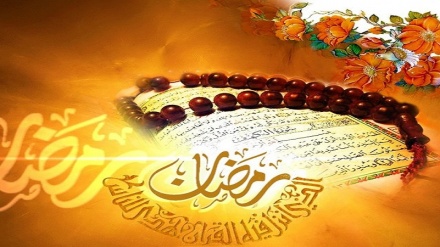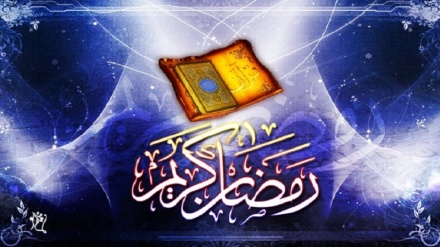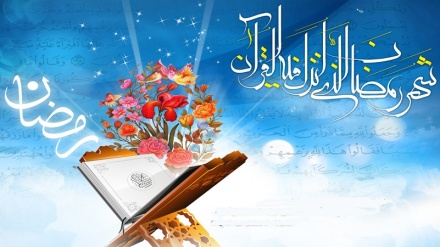Heavenly Call (17)
Welcome to the 17th episode of Heavenly Call on the occasion of the blessed fasting month of Ramadhan.
We start with the special supplication of the 17th day, please listen:
“O Allah, guide me this day to righteous works; fulfill therein my needs and hopes; O You who do not stand in need of explaining or asking; O You who know what is in the hearts of the creatures; bless Muhammad and his Immaculate Progeny.”
As a reminder, we spoke about “Zekr” or Remembrance of God. The 5-times daily ritual prayer is one of the most outstanding examples of remembrance of God. This act of worship has been stressed by all divine messengers, especially the last and greatest of them, Prophet Mohammad (blessings of God upon him and his progeny). His infallible successors, the 12 divinely-designated Imams, followed his role model and emphasized on the daily ritual prayers by setting practical precedents to prove its importance. The holy Qur'an in several ayahs has focused on the status of this obligatory act. In ayah 14 of surah Ta Ha, for instance, God Almighty tells mankind:
“Indeed, I am Allah - there is no god except Me. So, worship Me and maintain the prayer for My remembrance.”
This ayah is noteworthy from different aspects. First, Allah introduces Himself as the One and Only God, and therefore only He should be worshipped and no one else. This is a firm rejection of all false views and deviated tendencies that regard the idols and the weird imaginations of the warped minds of the polytheists as deities.
Secondly, Allah says in explicit words: be My servant and only worship Me. This is a transparent stance against sectarian and deviationist currents such as dualism, polytheism, idolatry, and the worship of those possessing power and wealth. Finally, the ayah ends with the divine command to maintain prayer. It doesn't say, 'Read prayer'; rather it says, 'Maintain prayer."
All scholars are unanimous that maintenance of prayer means spreading the culture of the daily ritual prayers in the society. In other words, a believer is duty bound not just personally perform the ritual prayer, but to feel responsible vis-à-vis the society for promotion of the regular performance of the daily ritual prayers. That is why congregational prayers are highly recommended. It is mentioned in hadith that the neighbor of a mosque should perform his prayer in the mosque; and his prayer will not be accepted if he performs his prayer at home without a satisfactory excuse. The point that matters is that the ritual prayers, whether performed individually or in congregation, places the believer firmly in the fortress of God's remembrance making him/her immune from committing sins. The holy Qur'an says in ayah 45 of Surah Ankabut:
“Maintain the prayer. Indeed, the prayer prevents indecencies and wrongs, and the remembrance of Allah is surely greater. And Allah knows whatever you do.”
In view of these facts, the only constructive prayer is the one that prevents man from erroneous acts and deeds and urges him to go closer to God. The point to note is that the ayah says that the remembrance of God is greater than anything else.
Basically, the raison d'être" for the ritual prayer which was mentioned in the previous ayah, too, is the remembrance of God. That is to say, it should make a firm bond between the servant and the Lord and refresh the spirit of servitude in the believer. The prayer without this role is not a true prayer and will not make man distant from sin. The Messenger of Mercy said, "He whose prayer doesn’t prevent him from sin and indecent act, will drift further from God."
After the daily ritual prayers which are obligatory on every believer, the late midnight prayer and Friday congregational prayer have an especial status in Islam. God addresses His Prophet in ayah 79 of surah Isra', saying:
“And keep vigil for a part of the night as a supererogatory for you. It may be that your Lord will raise you to a praiseworthy station.”
There are many books and hadiths on the status of the late midnight prayer, which is highly recommended, though it is not obligatory. But a hadith from the Prophet will suffice here. He said, "Whenever the servant of God is in the state of solitude with God the Beloved and in the state of supplication and communion with Him, God will radiate a light in his heart and will fix it. Then, He will tell the angels, 'My angels! Look at my servant who has been in state of solitude with Me in midnight while the evildoers are indulged in frivolities and games. Testify that I forgave him."
It is said the late midnight prayer was obligatory only for the Prophet. Yet, the infallible Imams followed his model. In addition, the ulema and devoted Muslims have constantly adhered to this valuable non-obligatory act of worship. Indeed, prominent ulema such as Imam Khomeini attained very lofty positions in the divine court by firmly adhering to the letter and spirit of Islam. He was a true follower par excellence of the Prophet and Islam and the infallible Imams. The key to his victory over all enemies was that he just feared God and nobody else.
RM/AS/SS


